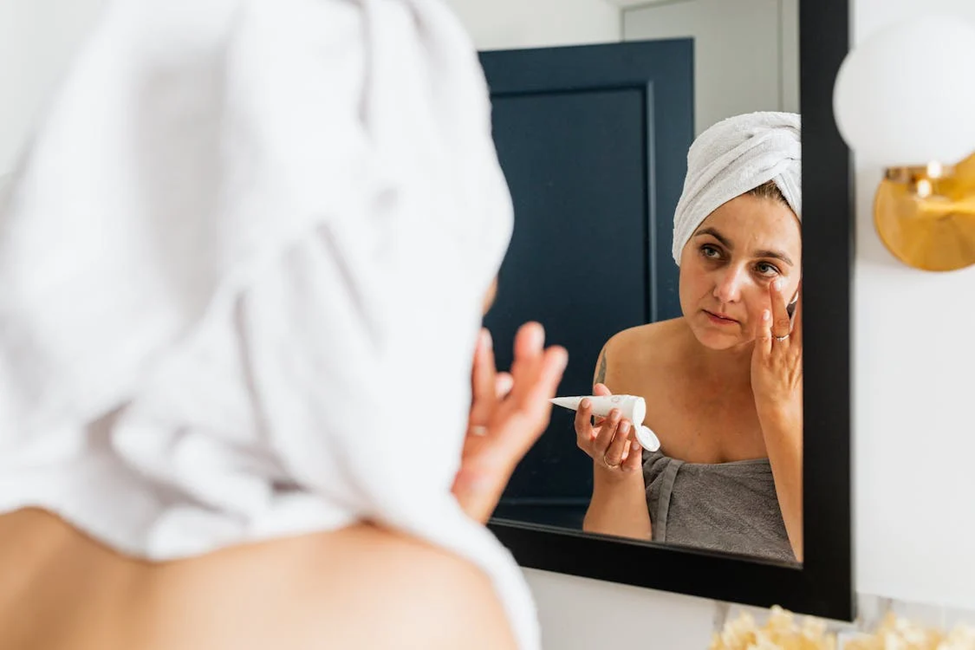As we age, our skin naturally loses its youthful firmness and elasticity. This process is inevitable, but with the right knowledge and tools, we can significantly slow it down and maintain a vibrant, youthful appearance for longer. This guide aims to educate you on practical, effective measures you can adopt to bring back the youthful glow to your aging skin. From understanding the science behind skin aging, and the role of nutrition, to exploring various skincare routines and professional treatments, we will provide an insightful journey designed to empower you with the necessary information to make informed decisions about your skin health.
Professional and At-Home Treatments
Professional treatments, such as chemical peels, laser resurfacing, and microdermabrasion, offer a more intensive approach to skin rejuvenation. These treatments work by removing the outer layer of skin, stimulating the production of collagen and elastin, two key components in maintaining skin firmness and elasticity. However, these treatments should always be administered by a certified professional due to their complexity and potential side effects. At-home treatments, on the other hand, offer a more accessible and affordable option. Whether you decide to purchase and use Restylane, Juvederm, or other injectables, be sure to talk with your provider about the possible risks and benefits associated with these treatments.
Regular use of products containing retinoids, vitamin C, and hyaluronic acid can drastically improve skin texture and reduce the appearance of wrinkles. Retinoids speed up cell turnover, vitamin C brightens the skin and boosts collagen production, while hyaluronic acid locks in moisture, keeping the skin plump and hydrated.
Healthy Nutrition
The foods you consume have a direct impact on your skin's health and appearance. Nutrients like antioxidants, found in berries, dark chocolate, and nuts, combat the harmful effects of free radicals, which are known to accelerate skin aging. Likewise, Omega-3 fatty acids, found in fatty fish, chia seeds, and flaxseeds, promote skin elasticity and prevent dryness. Consuming a diet rich in vitamins A, C, and E, can also contribute significantly to skin health. Vitamin A promotes cell growth and protects against UV damage, Vitamin C boosts collagen production, and Vitamin E helps nourish and protect your skin from damage caused by free radicals. Remember, healthy skin is often a reflection of a healthy body.
Hydration
Drinking plenty of water helps to maintain the skin's elasticity and suppleness, keeping it hydrated and youthful-looking. Hydrated skin is less prone to wrinkles and dryness, while dehydrated skin tends to look dull. Aim for 8-10 glasses of water a day to reap the full benefits of this natural remedy. Additionally, you can opt for hydrating skincare products that contain hyaluronic acid or glycerin; these ingredients help prevent moisture loss and keep your skin looking plump and hydrated. Moreover, try to limit your intake of alcohol and caffeine, as both of these can dehydrate your skin.
Sun Protection
Use a broad-spectrum sunscreen with an SPF of at least 30 daily, even on cloudy days. Wear protective clothing like hats and sunglasses whenever you are outside, and try to limit your sun exposure between 10 am and 4 pm when the UV rays are strongest. Also, remember to apply a generous amount of sunscreen on all exposed skin areas every two hours.
Taking these precautions can help protect your skin from sun damage, preventing premature wrinkles and other signs of aging. In case you experience too much sun exposure, make sure to treat your skin with a soothing aftersun cream, such as aloe vera gel or cucumber extract.
Routine Skincare
Implement a regular skincare routine that includes cleansing, toning, and moisturizing. Specifically, look for products with ingredients such as retinoids, vitamin C, and hyaluronic acid that promote skin renewal and hydration. Also, consider adding an exfoliant to your routine, as this helps remove dead skin cells, keeping your complexion looking bright and fresh. Lastly, make sure to use a gentle cleanser that is suitable for your skin type; using the wrong product can cause irritation or dryness. Of course, the best results are achieved through consistent practice, so be sure to stick with your routine and don’t skip any steps.
Regular Exercise
Did you know that exercise can benefit your skin health? Regular physical activity increases blood circulation, which helps to promote healthy skin. Additionally, regular exercise can help reduce stress levels, and as you know, stress is one of the major factors that contribute to premature aging. Aim for 20-30 minutes of daily activity and practice relaxation techniques whenever needed. As you can see, there are plenty of measures you can take to maintain a youthful, glowing appearance. With the right knowledge and tools, you’ll be able to restore your skin's youthfulness and keep it looking beautiful for years to come.
Although the process of skin aging is inevitable, we have the power to influence its pace and impact. The key to restoring and maintaining a youthful look lies in a holistic approach that combines professional treatments, healthy nutrition, proper hydration, sun protection, a consistent skincare regime, and regular exercise. By instilling these practices into your daily routine, not only will you see a visible difference in your skin's appearance, but you'll also feel healthier and more vibrant overall.
Remember, your skin is a mirror reflecting your overall health and lifestyle choices, and by investing in your skin health, you're investing in your well-being. The journey to youthful skin is an ongoing process, but with patience, dedication, and the right knowledge, it's entirely within your reach.





















COMMENTS